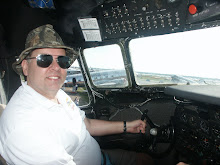I came to a realization late this fall. I'm a CW contest operator now. I'm not sure how that happened.
As I recounted in my Novice story, I started off with CW, since that was all Novices were allowed to operate. Even after I upgraded to General, I still operated mostly CW.
When I started radio contesting in 1986, I did both CW and Phone contests at first. Phone contesting brought more success. By 1990, I had pretty much given up on CW contests.
In 1996, something happened. Bill Fisher (then KM9P, later W4AN and now, unfortunately a silent key) was asking people to join teams for the North American QSO Party (NAQP) for the newly formed South East Contest Club (SECC). While i hadn't operated a CW contest in years, I wanted to participate in SECC activities. So, I volunteered to join in.
I've misplaced my write-up for that contest effort, but I won't forget it. I moved into the house in Gwinnett county late in 1994. In January 1996, I was still finishing rooms in the basement, and did not have any ham equipment set up.
My 1996 NAQP CW effort was a hastily improvised affair. I hung a 125 foot doublet fed with open wire, between the railing of the deck and a tree in the back yard. It was probably all of 15 feet in the air at its highest. I set up my venerable Kenwood TS-430S on a lunchroom table, with a Murch UT-2000A antenna tuner. The setup was in an unfinished basement with no heat, so I put on warm clothes and wrapped myself in a blanket.
Ten hours of operating later, I had all of 120 QSOs in the log, and I was cold despite the blanket. Many of the operators were going far, far too fast for me, and it was real work to get them into the log. Despite this, I was pretty pleased with my score. Still, there was plenty of room for improvement.
Real contest CW operators don't operate as I did then, scribbling everything down on paper. They copy in their head. The first revolution was to throw the pencil away. At first, I copied code by typing notes into the computer. I would use two computers, one for logging, and one with a TextEdit application running. A year and a half later, I had progressed to the point where I could copy standard contest exchanges in my head. Well, at least long enough to type them into the computer and log them. That contest, the NAQP CW Summer of 1997, was the first contest I would consider "fun" instead of "work."
It would take about five more years before I could copy most of the high-speed contest code, sent around 30 words per minute (wpm).
The second revolution came in sending. Until 2002, I send everything by hand using a keyer. Then I hooked up a simple little circuit that would allow my logging computer to send the code. What a God-send! While I might be able to copy code at 30 wpm in my head, I could only send about 20-25 wpm, and sometimes not that well. The computer, on the other hand, would send flawless code, and could do so at 28-30 wpm.
At this point, I could receive and send contest CW at nearly 30 wpm. That's basic. But, there's still more. Just receiving and sending isn't enough -- you have to know what to send in response to what you receive. You have to know how to pick up calls the first time when you tune up on them would S & P. You have to know how to sort out the pile when three or four people try to answer your CQ.
Slowly, I accumulated some operating skills. In 2005, I was recruited to be a CW operator for a large 9-transmitter Field Day operation. I ended operating 15m, 80m and 10m CW. What fun! I had such a blast that I did it again the next year.
The hardest skill to acquire is knowing how to run -- how to answer when multiple people are calling in response to your CQ. You can't know what to do without lots of practice. And, with low power and mediocre antennas, it's hard to get a lot of practice. All the time I've spend operating with the NQ4I multi-multi team has slowly paid off.
I've finally reached the point where I feel pretty confident on CW, even calling CQ. During the NAQP CW recently, I watched as the last 10 rate meter peaked at 264 / hour. That doesn't happen often, but it makes me smile when it does.
Subscribe to:
Post Comments (Atom)


No comments:
Post a Comment